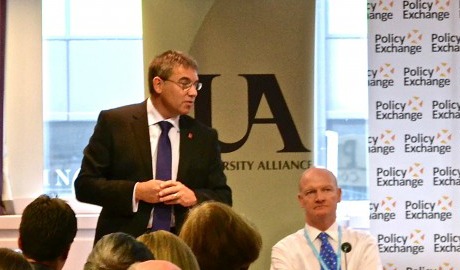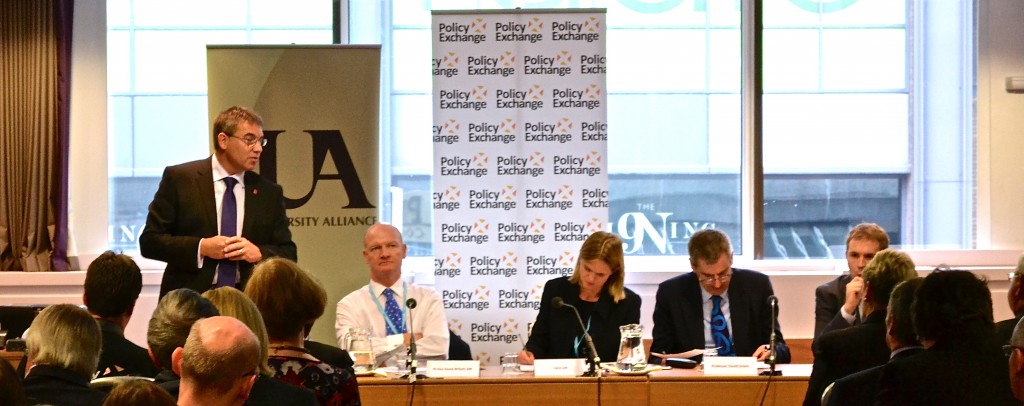I have recently returned from my first ever Party Conference season and I wanted to share with you the points I made at the events we ran there. More about what we did at each Conference can be found here.
There have been many debates and discussions about the recent changes to the student finance system, student number controls and the regulatory framework for higher education, as proposals have been developed and policies introduced.
However, university leaders and students have not been in the driving seat. Responding to these debates has confined us to the same conversations we have been having for the past ten years.
As a result, the sector lacks clarity about the long-term. In particular, there is no clarity about how and where universities fit within the UK’s economy and society vision.
There are many different models of higher education, but the question is what do we need in the UK and how are we going to fund it?
12 months ago, University Alliance started a project called university_vision to look at the long-term future, aspirations and ambitions for higher education.
We wanted to create a different paradigm for exploration, challenge and debate.
Using a scenario-based exercise, University_Vision has helped us explore the difficult questions that really shed light on the challenges and opportunities that face universities in the longer term. It has not been about predicting the future – instead it has been about using scenarios to stretch and challenge our thinking and planning. We have used two axes – social and economic – and considered the interaction between them, creating four credible but extreme scenarios.
The project is sector-led and has been a big collaborative effort, involving experts from around the country, bringing in a range of diverse viewpoints. We have engaged with people from across mission groups and the education sector, as well as involving representatives from industry, the third sector and students. We have also partnered with the NUS, Guild HE and Hewlett Packard, and have encouraged contributions via the web. We want to develop the project even more and engage with wider audiences, in particular the public, to explore further what they want from universities.
The project’s aims are to stimulate debate – not to jump immediately to solutions or recommendations.
Some big and difficult questions have been raised, that we as a sector, together with the Government and others, need to be tackling. For example:
- What happens if the Government can no longer afford to fund universities and provide student loans?
- What if ‘disruptive technologies’ significantly change the skills needed from the existing labour force?
- What if only a few institutions are receiving public funding and others privatise?
- What would happen if all barriers to entry into the higher education market were removed and the US, China or others were to set up universities in the UK?
- What if the 3-year undergraduate degree was no longer the dominant model of delivery?
- If the demand for higher-level skills continues to rise, what does this mean for how we approach post-graduate education?
We can be sure that the future is going to look very different from now and, as a sector, we need to lead, adapt and change. Through university_vision we want to establish a way of thinking and talking about what the future means for the higher education sector and how we can create that future together, as a sector, and as a major player in the UK and global economy and society.
This is a critical time, where the future success of the UK, both in terms of our international competitiveness and social cohesion, will very much depend on the decisions we are making now. We need to be bold, we need to be creative and entrepreneurial, and we need to work together to deliver a high quality and diverse university eco-system, that is centre stage for the knowledge economy we are building
We have something very special which must be nurtured and developed.
I look forward to the continuing debate over the coming months as we play the long-term game and think about our legacy for generations to come.





